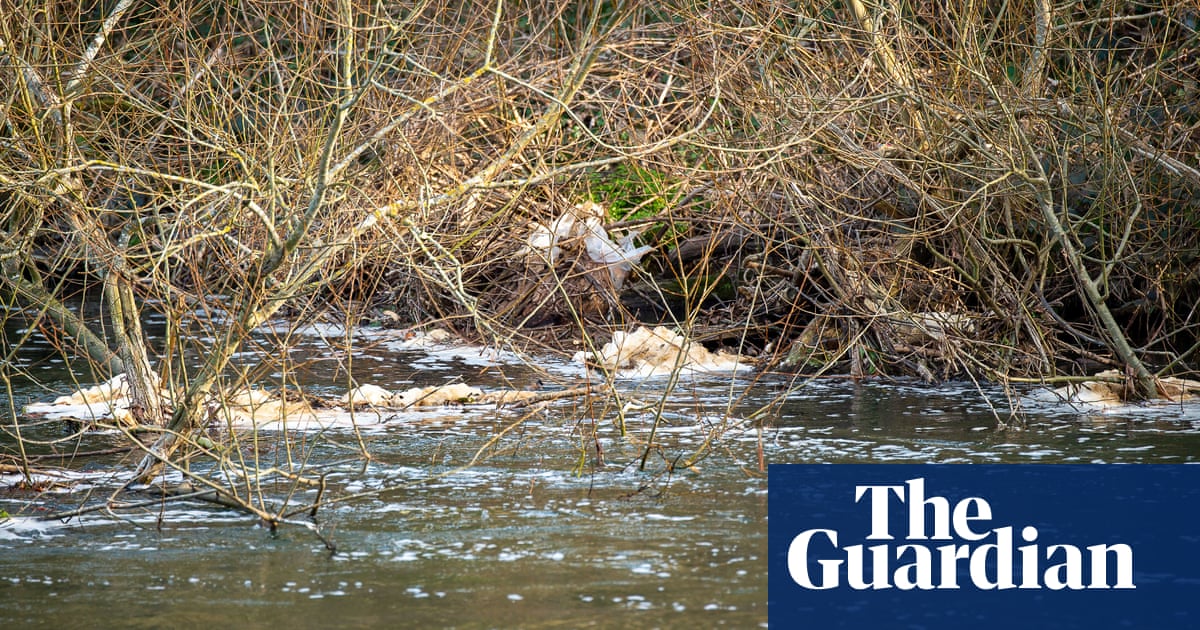Englandâs rivers are likely to remain in a poor state for years to come because the government is failing to put in place EU clean water laws post-Brexit, the watchdog has found.
When Britain was a member of the EU, the government was required to follow the water framework directive (WFD), standards for waterways that have been credited with cleaning up Europeâs dirty water.
Since Brexit, the UK is no longer required to match EU regulations, and has itsown watchdog, the Office for Environmental Protection (OEP).
Under the WFD, all rivers are supposed to attain âgoodâ ecological status by 2027. In 2019, the last time full water assessments took place, just 14% of rivers were in good ecological health and none met standards for good chemical health.
A report by the OEP states that this aim will not be met at the current rate. It says: âWe have seen little change in recent years, despite measures designed to improve matters. As things stand, government will not meet its ambition that most water bodies will be on the road to good condition or else already in that state by 2027.â
Dame Glenys Stacey, the chair of the OEP, has called the governmentâs failure âdeeply concerningâ, with the report finding that England is failing to put in place measures to improve the condition of rivers, lakes and oceans.
In practice, this means cleaning up pollution from sewage, agricultural waste and chemicals.
Findings include:
-
Under their worst-case assessment, just 21% of surface waters will be in a good ecological state by 2027, representing only a 5% improvement on the current situation. This would break the Environment Act, which aims to improve air and water quality, protect wildlife, increase recycling and reduce plastic waste.
-
There is insufficient funding to meet the targets, meaning that under the WFD ministers are being compelled by the OEP to write a new, properly funded plan to protect the countryâs waters. The Environment Agency has calculated a cost of £51bn to clean up Englandâs waters, which would provide £64bn in monetisable benefits. However, confirmed funding of only £6.2bn is just 12% of that required.
-
There is not enough monitoring taking place to find out the state of Englandâs waterways, making it nigh on impossible to clean them up.
Dame Glenys said: âWe have found that, while the relevant law here is broadly sound, it is simply not being implemented effectively. This means it is not delivering as intended and, as a consequence, most of our open water is likely to remain in a poor state in the years ahead unless things change. This is deeply concerning.
âThere is a significant need to strengthen how environmental law on water is applied to make sure it is effectively and contributing as its needs to achievinggovernmentâs wider goals and targets.
âThere is a particularly urgent need for additional measures to be in place and for measures to be targeted at a local level, if there is to be any hope of achieving the 2027 targets. Government must speed up and scale up its efforts to protect and improve our waters.â
While Britain was in the EU, a national chemical and ecological survey of rivers was conducted annually. After Brexit, the WFD was transposed into English law.
From 2016, the government decided to test water quality under WFD every three years rather than annually. This has now been delayed further; the government has said it does not intend to deliver a complete update until 2025, the latest permissible date under the new WFD.
after newsletter promotion
The Guardian previously revealed that ministers planned to stop assessing waterways under the WFD and were instead using a new, as–yet-undisclosed methodology, which campaigners fear will not be as rigorous.
Charles Watson, the founder of the water campaign group River Action, said, âTodayâs OEPâs assessment makes grim reading for our rivers and is a damning vote of no confidence in Defraâs and the EAâs ability to deliver on their statutory objectives to bring the majority of our water bodies to âgoodâ ecological condition by 2027.
âWith almost all our rivers failing ecologically, it is shocking to read the OEPâs conclusion that current government plans are clearly woefully inadequate to address this environmental crisis.
âWe fully echo the OEPâs demands that the secretary of state pulls put his finger out and takes urgent action to develop additional, specific, time bound and fully funded measures to address the dire condition of our riversâ.
A government spokesperson said: âWe welcome this reportâs recommendations to go further and will consider them in detail.
âWe are confident that the river basin management plans are compliant with the current regulations and we have already committed to reforming these plans and delivering tailored long-term proposals to improve all water bodies in England.
âThis is alongside our work to fast-track investment and hold water companies more accountable â including consulting on a ban on bonuses and bringing in a fourfold increase in inspections.â



